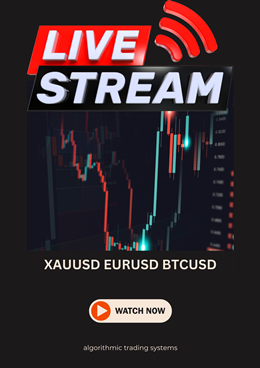In Mastery, Robert Greene describes in detail the path to mastering anything, and indicates that it takes about 7 years. You may be proficient (profitable) at something well before you master it, but to truly master something takes about 7 years. This aligns with the research pointed out by Malcolm Gladwell’s in Outliers that it takes 10,000 hours to attain mastery in a field (that’s about 5 to 6 year working full-time). There are of course exceptions, and even putting in this amount of time doesn’t guarantee mastership.
The point is that traders often make the mistake of thinking very early on that they know more, and are better traders, than they actually are. There are few quicker ways to lose money in the markets than by lacking humility.
There have, and continue to be, times where I believed I understand something only to find out I didn’t. By understanding the 4 stages of trader development it is possible–if you are honest with yourself–to slot yourself into a category and see how much further you have to go in your market studies. Simply by understanding the stage you are in, and accepting it, you may be able to speed up the mastership process by avoiding common pitfalls.
These four stages are based on general psychology and highlight how humans gradually learn, incorporate and master various mentally–challenging endeavors. Use the four steps to gauge your progress in other, non-trading endeavors, as well.
Stage 1. Unconscious Incompetence
This is the starting point. You know nothing, and are also unaware of your own ignorance. It’s a dangerous time. It’s a time where you’re driven by impulse and personal tendencies. You read an article on a trading strategy, and it looks awesome, so you read a few more and feel you have a good grasp of how to trade. You open a small trading account and proceed to lose the money. Usually a few lessons like this–if you are lucky you only lose ‘play money’ in a demo account–you realize there may be more to trading than first meets the eye, and you require more study (stage 2).
Stage 1 is also generally the perpetual state of the “trading voyeur.” This is the person who dabbles in trading, maybe makes a few trades (or lots) here and there, likes to read business news (see: Do I Need to Watch the News to Be a Good Trader?), talk about the market and monitor forums looking for quick trading tips, but never takes the intentioned steps of diligent research or market study. Trading signal providers thrive off those in this stage and stage 2.
Stage 2. Conscious Incompetence
Being able to admit you don’t know much, usually after some costly mistakes, means you have entered the second broad stage of your education. This is where a very large group of traders will sit, and where most traders spend a lot of time. They understand they are missing a piece(s) of the puzzle because they aren’t seeing results, but don’t know what to do about it.
You are aware of pitfalls, and to put it bluntly, you’re aware of your own incompetence. Harsh as it is, this is a very powerful step. Being able to admit incompetence opens the door to further knowledge.
It is then up to you to study, research and practice so you become aware of what it is that you don’t know. You must then be open and humble enough to accept what you learn, but also strong enough not just take everyone (book/article/video/course) at their word.
This stage is tricky. You may have periods of great returns, possibly even years in a row, but it is still very possible you haven’t left stage 2… or you may be moving back and forth between stage 2 and stage 3. After a period of success you’ll feel confident, so you may start making subtle (or drastic) changes to your strategies, lose interest in trading or face some other obstacle. Ultimately, the success you once thought would never leave does leave (regardless of reason), and now you need to find it again. This is a lesson as well, it just takes longer and it usually isn’t an education you get from a book–it is something you need to live through.
Stage 3. Conscious Competence
After a lot of study, work, testing and practice you finally have a solid trading plan (see: Learn How to Make a Trading Plan for a basic guide) , you’re well capitalized, you know how to manage your money and trades, you have verified and tested strategies, you are aware of personal tendencies and how to control them, you are no longer searching for a holy grail and instead just trust the method you have, you aren’t swayed by others opinions, don’t gamble and don’t risk too much on each trade.
At this stage, you have learned your lessons and are now simply focusing on implementing your trading plan as best you can. You may have people who help, such as a mentor, but ultimately you realize that successful trading is up to you. It’s you who needs to remain aware of what the market is doing so you can implement you trading plan in real-time.
This is still a learning phase. You now know what you have to do, but you are learning to implement that knowledge in real-time, with real money and with very few deviations.
IF, you have gone through this process, created a trading plan and diligently follow it, simply by repetition you will reach stage 4. Following a plan isn’t as easy as it sounds though; it requires you handle your “personal demons” such as impatience, lack of discipline, as well as control your fear, hope and greed. A study of trading psychology, or simply psychology in general, and personal reflection will play a significant role in this stage of trader development.
Stage 4. Unconscious Competence
This is the mastery stage. You have incorporated all that you know (and discarded a lot of BS that you were also taught) into a trading plan, and can now execute that plan on “auto-pilot.” You no longer have to wrack your brain deciding on whether to take a trade or not, and you don’t need to refer to your trading plan for verification of anything. Like a professional golfer who has hit thousands upon thousands of golf balls to create muscle-memory, through loads of practice and making the same trades over and over again you too developed a type of “trading-memory.”
The path may not stop here though. You may choose to develop new strategies and test those, as well as experiment with new trading systems. For these new methods you will go through a learning process, usually starting at Stage 3 again, but that is only for that new strategy. You still retain all you have learned, and therefore have the ability to easily come up with new ideas and refine your processes.

 Events
Events Blog
Blog











